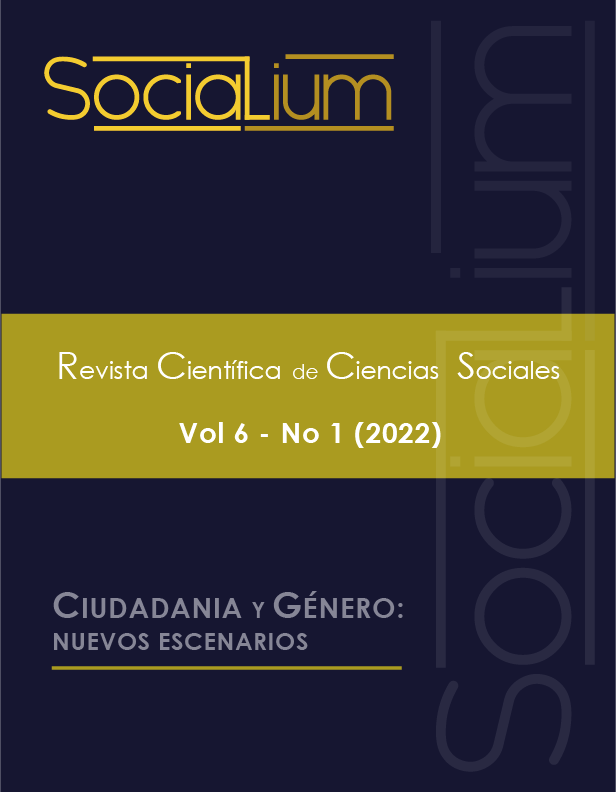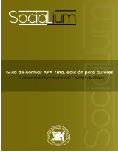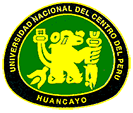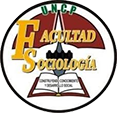Regulation of land use in the peasant community of Ticlacayán, Pasco, 2004-2014
DOI:
https://doi.org/10.26490/uncp.sl.2022.6.1.938Keywords:
natural resources, use of natural resources, land regulation, regulation conflicts, conflict of interest, mining conflict and community.Abstract
The research analyzes the regulation of land during the period 2004 to 2014, in particular the concession of this resource to the mining industry. In this environment, the communal assembly delegates this responsibility to the leaders, who distance themselves from the being of the community and anticipate, in the framework of dialogue and negotiation, to concentrate profits and obtain individual benefits. The methodological approach is qualitative, and the research design is ethnographic, narrative and hermeneutic. In-depth interviews were conducted with the following actors: community president, community leaders and district mayor. The following documents were reviewed: minute book and files, regulations on land regulation. The result of the investigation maintains that in the framework of the negotiation, irregular arrangements are established between the representatives of the company and the leaders of the communal government, specifying the management of the dialogue. Arrangements that are repeated during the study period. But, the communal assembly at the end of 2014, in order to strengthen the communal leadership, expels the community members and leaders involved in these events and elects new representatives. The central conclusion of the research is that the regulation of land use responds to the function of the communal government, guaranteeing formal access to the land, but this context presents tensions due to the fact that the leaders dispute the control of access to the land.
References
Abusabal, W. (2014). Conflictos por tierras en las comunidades campesinas del departamento de Huancavelica: tipología y características. CEPES
Burneo, M. (2012). Elementos para volver a pensar lo comunal: nuevas formas de acceso a la tierra y presión sobre el recurso en las comunidades campesinas de Colán y Catacaos. CEPES.
Burneo, M. y Ortiz de Zevallos, A. (2015). Poder, comunidades campesinas e industria minera: el gobierno comunal y el acceso a los recursos en el caso de Michiquillay. CEPES.
Castillo, M. y Urrutia, J. (2007). Participación de las comunidades campesinas en el gobierno local: un desafío político. Aporte de los casos Anta (Cusco) y Zona Centro (Huancavelica). Grupo Propuesta Ciudadana.
Congreso Constituyente Democrático. (1993). Constitución política del Perú. Congreso de la República. https://www.congreso.gob.pe/Docs/files/documentos/constitucionparte1993-12-09-2017.pdf
Diez, A. (2013). Comunidades campesinas: nuevos contextos, nuevos procesos. Anthropologica, 31(31), 5-14. https://revistas.pucp.edu.pe/index.php/anthropologica/article/view/7605
Diez, A. (2012). Tensiones y transformaciones en comunidades campesinas. Cisepa.
Diez, A. (2000). Motivaciones y dinámicas de los tipos de organización de la población rural andina peruana. Mimeo
FAO (2014). Directrices Voluntarias sobre la Gobernanza de la Tenencia en breve. FAO
Laureano, M. (2004). Conflictos en tierras de Comunidades Campesinas y legislación. Allpa Edit.
Ley N.º 26505 (1995, 14 de julio). Congreso de la República. Normas Legales N.° 150033. Diario Oficial El Peruano. http://extwprlegs1.fao.org/docs/pdf/per9222.pdf
Ley N.º 24656 (1987, 13 de abril). Ley General de Comunidades Campesinas. Congreso de la República del Perú. https://centroderecursos.cultura.pe/sites/default/files/rb/pdf/ley%20general%20de%20comunidades%20campesinas.pdf
Ley N.º 26821 (1997, 26 de junio). Congreso de la República. Normas Legales N.° 150333. Diario Oficial El Peruano. https://leyes.congreso.gob.pe/documentos/Leyes/26821.pdf
Ley N.º 29785 (2011, 07 de setiembre). Congreso de la República. Normas Legales N.° 449529. Diario Oficial El Peruano. https://leyes.congreso.gob.pe/Documentos/ExpVirPal/Normas_Legales/29785-LEY.pdf
Meza, A. (2016). Memorias e Identidades en conflicto: el sentido del recuerdo y del olvido en las comunidades rurales de Cerro de Pasco a principios del siglo XXI. Editorial Punto Com.
Urrutia, J. (2007). Los estudios sobre comunidades y la perspectiva de género. En Grupo Allpa (Ed.) ¿Qué sabemos de las comunidades campesinas? (pp. 259-290). Grupo Allpa.
Downloads
Published
Issue
Section
License
Copyright (c) 2022 Américo David Meza Salcedo, Eva Elvia Huamán Tovar

This work is licensed under a Creative Commons Attribution 4.0 International License.








.jpg)















